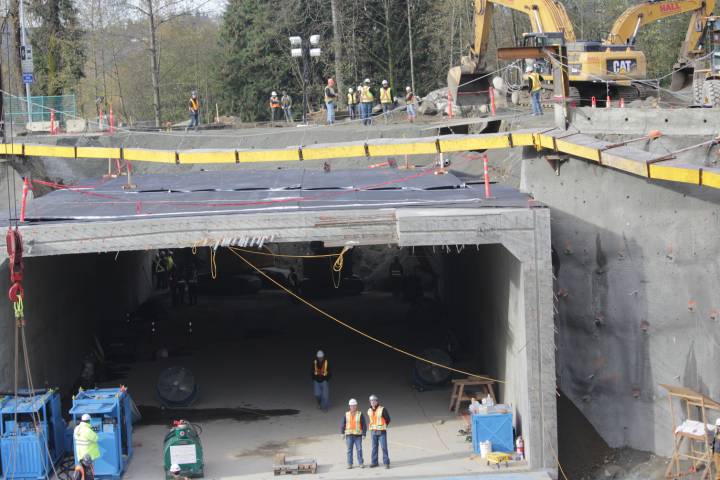As Metro Vancouver gears up to build a pair of mega-transit projects, one business group is issuing a call to protect small businesses from unintended effects.

It’s part of a new report from the Canadian Federation of Independent Business (CFIB) titled Paving a Smoother Road: Helping small businesses survive infrastructure work.
And with construction on the horizon for Surrey light rail transit (LRT) and a Broadway subway, the group says its concerns are more relevant than ever.
Spokesperson Amber Ruddy said in Vancouver, there’s still a sore spot over how Cambie Street businesses were affected by SkyTrain construction a decade ago.
“We’ve had a series of complaints, especially with the Canada Line going in, and how different businesses have been impacted,” she said.
“In our report, we found 46 per cent of businesses that have had construction impacts have lost sales. We’ve had 21 per cent say they had to rely on their personal savings to keep their business afloat.”

Get breaking National news
Canada Line construction involved the cheaper but more disruptive tunneling technique known as “cut and cover” in which crews dug a trench for the line, then filled it over. TransLink’s more recent Evergreen Line was built using a tunnel boring machine.
- Snowmobilers fall through ice, bodies recovered days later after lake refreezes: RCMP
- Vancouver city councillor apologizes for calling fellow members ‘drug users’
- Dozens of bus shelters vandalized across Metro Vancouver
- B.C. business leaders criticize budget, saying province is in ‘an entrepreneurial drought’
The CFIB says Canada Line construction cost the average small business owner about $112,000, and that many were forced to move.
“These municipalities have billions of dollars invested in these light rail transit and different lines to get people to work. But we also have to think about how is the small business owner impacted,” she said.
The CFIB report found strong support among small businesses for a “coherent construction mitigation policy” among local governments, one which would include compensation for businesses that face losses due to construction.
READ MORE: Federal budget shows billions in infrastructure won’t be spent until at least 2021
It pointed to examples such as Brussels, where small merchants that are forced to close for a week or more get $117 per day in compensation, or Seattle which put aside US$15 million to compensate businesses affected by LRT construction.
In addition to compensation, the CFIB says such a plan would include a “no surprises” rule, with regular “state of infrastructure” reports so that businesses know what is coming down the pipe.
It also calls for a more comprehensive planning process, in which the phasing and timing of projects are carefully laid out, as well as better contracting and the creation of a city business liaison officer.













Comments
Want to discuss? Please read our Commenting Policy first.